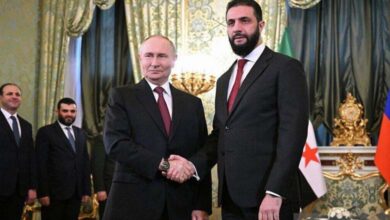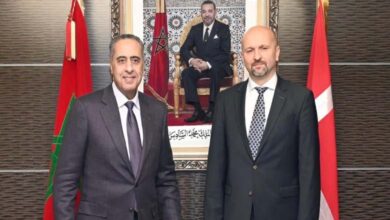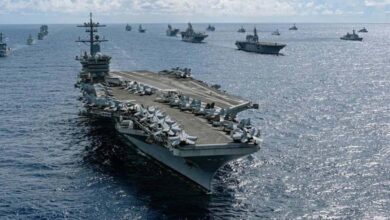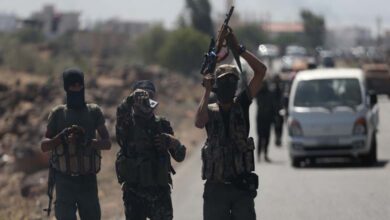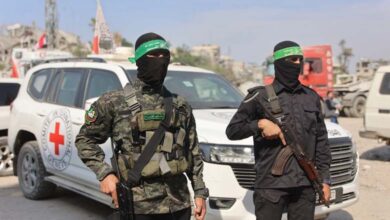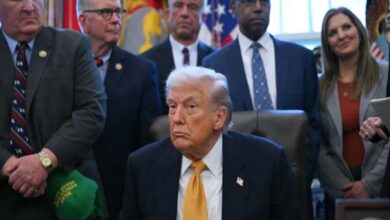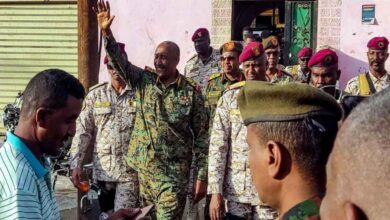Why Sudanese Military Leaders Fear a Nuclear Deal with Iran
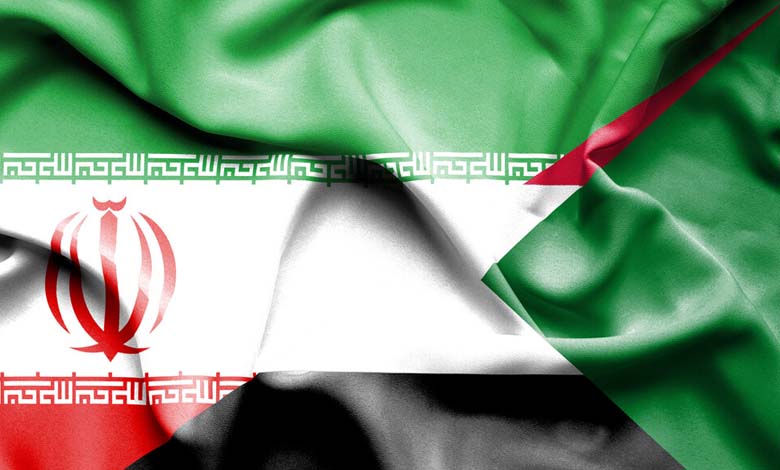
The Italian capital, Rome, hosted U.S.-Iranian negotiations over Tehran’s nuclear program — talks that Sudanese army leaders are watching with intense concern.
Sources close to senior figures in the Sudanese army said that the top military leadership is closely monitoring statements by American and Iranian officials regarding progress in the negotiations.
On Sunday, Iran’s Foreign Minister Abbas Araghchi stated that if realism and goodwill continue in the indirect talks with the U.S., it would be possible “to achieve positive outcomes,” according to the Iranian Mehr News Agency.
-
Sudanese rapprochement with Iran and Turkey: Economic gains or geopolitical threats?
-
Iran Qatar and Turkey: Ongoing Support Fueling the Civil War in Sudan
Why is this worrying Khartoum?
Sudanese army commanders remain committed to continuing the fight against the Rapid Support Forces (RSF), dismissing diplomatic solutions and dialogue as a path to ending the conflict that has raged since 2023.
The army relies on Iranian drones to gain a tactical edge over the RSF. Recently, thanks to these kamikaze drones, the military has regained control over large areas of the capital, including key sovereign sites.
Despite international criticism of the unregulated use of kamikaze drones endangering civilians, the Sudanese army has presented its territorial gains as strategic victories.
Sources note that army leaders are concerned that progress in the Tehran–Washington talks could negatively impact their military capacity if Iran decides to halt drone supplies.
-
Fueling the War in Sudan: Iran Qatar and Turkey in the Eye of the Storm
-
Iranian-Sudanese Cooperation: Development Projects or a Disguise to Fuel Conflict and Strengthen Regional Influence?
Could that happen?
The second round of Iran-U.S. negotiations concluded on Saturday in Rome with an agreement to activate technical channels through expert meetings. A third round is scheduled to be held in Muscat, the Omani capital.
In their second indirect meeting within a week, Abbas Araghchi held approximately four hours of negotiations in Rome with Trump’s Middle East envoy, Steve Witkoff, mediated by Omani Foreign Minister Badr Al-Busaidi.
According to the Omani Foreign Ministry, both parties agreed “to proceed to the next phase of talks aimed at reaching a fair, lasting, and binding agreement.”
-
Reasons Behind the Sudan-Iran Rapprochement and the Connection to the Muslim Brotherhood
-
Military Cooperation between Sudan and Iran: New Details Revealing the Complexity of the Strategic Alliance
The statement emphasized that any potential deal would ensure “a completely nuclear weapons-free and sanctions-free Iran,” while preserving the country’s right to peaceful nuclear energy development.
It also highlighted that “open dialogue and transparent communication are the key to achieving a trustworthy, mutually beneficial agreement that serves regional and international interests.”
Sudanese military leaders are aware that any U.S.-Iranian settlement likely implies Tehran’s withdrawal from regional conflicts, especially given Washington’s role in mediating peace efforts in Sudan.
-
Implications and Dimensions of Iranian Support in Sudan
-
Iranian-Sudanese Cooperation and Its Impact on the Country’s Stability
No Longer a Secret
Sources close to decision-making circles within the Sudanese army said that officials are aware the drone shipments received last year — specifically the single-engine Mohajer-6 model — are no longer a secret to the United States. The U.S. previously accused Iran of supplying the same drone to Russia during the Ukraine war.
Scott Bessent, U.S. Treasury Secretary, stated that Iran “continues to use revenue from oil to fund its nuclear program, produce ballistic missiles and lethal drones, and support terrorist proxies in the region,” stressing that the U.S. is “committed to targeting any Iranian efforts to finance these malign activities.”
-
Leaks: Arrival of an Iranian Delegation to Train the Sudanese Army and General Intelligence on Drone Use and Jamming Devices
-
Sudan: Arena of Iranian and Brotherhood Influence
In February of last year, Bloomberg reported that Iran had supplied Sudan’s military with Mohajer-6 drones, capable of reconnaissance and explosive delivery, with satellite images showing one stationed at Wadi Seidna base north of Omdurman — an area under army control.
Shortly before completing his term in March 2024, former U.S. Ambassador to Sudan John Godfrey told reporters that reports of Iranian arms support to Sudan’s army were “deeply disturbing and a major concern for us.”
-
From Iraq and Lebanon to Yemen and then Sudan… Al-Burhan Tilts Iran Militias in Africa
-
Iran and Sudan: Mysterious Ambitions and Investments in Crises
Observers believe the timing of the diplomatic restoration between Sudan and Iran — after a seven-year break — raised alarms in many Western circles about the intentions of the Sudanese military government in Port Sudan.
The announcement of renewed ties came in October 2023, six months into the war, which analysts see as a calculated military pivot to Iran in exchange for arms.
A diplomatic source, speaking on condition of anonymity, said that Tehran is leveraging Sudan’s need for weaponry to gain influence along the Red Sea — aiming to facilitate its activities, including supplying arms to Yemen’s Houthis.




